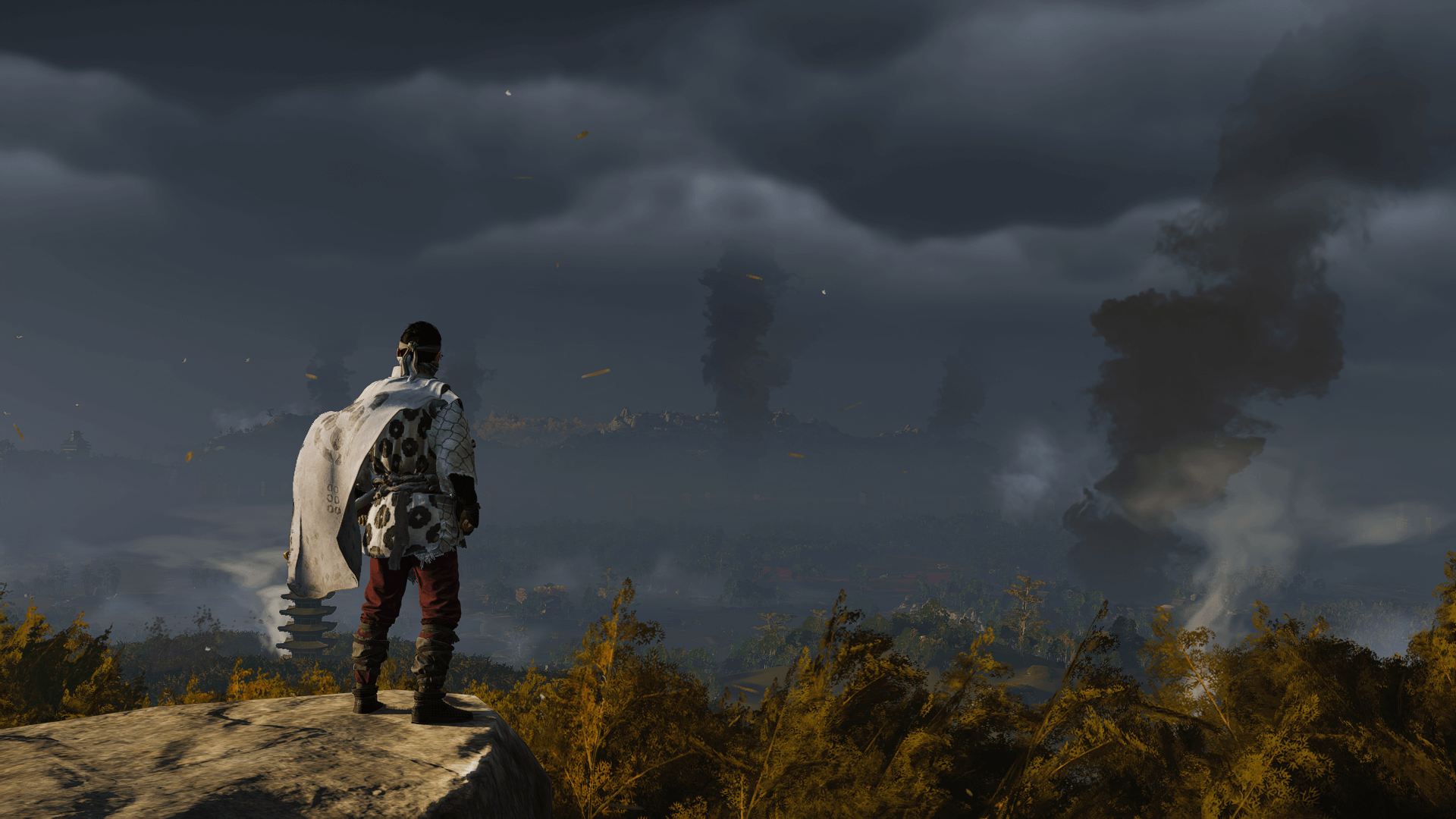
Ghost of Tsushima (PC) Review
Published:
Last updated:
Completed: MSQ, All Major Tales, All Mythic Tales, Some Side Tales
Following what I believe is a weak, trope-loaded, but still intentional first act, I struggled to really let Ghost of Tsushima grab me in previous attempts at playthroughs. It’s real strength lies waiting in Act 2, as personal stakes for all of the characters involved start to play out, betrayals and tragedies bubble to the surface. Act 2 is where all the tropes set up in Act 1, particularly a heavy focus on the “honor code” of the samurai led by clan Shimura, start to get poked at. The darker themes get explored, and this is where the game shines. These dark themes are paired with very personal stakes, and reflections on family, legacy, and survival. It’s the personal stakes at the heart of the major questlines that make all the difference, and I think I would think lesser of the game if the named character questlines weren’t part of my experience.
There’s loads of interesting details to explore in the game, including the fact that the Mongolians are often seen and heard at camps singing, dancing, playing instruments. The texts written for their artifacts tell of their adventures and exploits elsewhere. All of this is contrasted well with the brutality on display throughout Ghost of Tsushima, which Jin Sakai is capable of returning in kind. The enemies also feel as though they meaningfully evolve with Jin’s journey. Their tactics, awareness, and uniforms all change as you progress and are often visually distinct, indicating a soft “level”. This sort of immersive design is also present in many other elements of the art direction of Ghost of Tsushima, and justified by narrative. It’s really damn clever stuff.
The final act is exceptional too, leading to a climax and, in a rarity for games writing, falling action and resolution. To see that a game allowed their finale to breathe, and to prompt rememberance of the course of the game as part of that, was a genuine breath of fresh air. Too often, games are suddenly cut off with no sense of what comes after. Evil is defeated, roll credits. A lot of the time this is to justify allowing the character back out into the world to roam free, and that’s fine and all, but can feel breathless. That Ghost manages to subvert my expectation of that, and still provide opportunity to live in the final state of the world, with the weight of the story’s events left with me, is noteworthy.
Iki Island still awaits me, but the base game alone is worth experiencing. Ghost of Tsushima is exceptionally well crafted, and Sucker Punch should be real fucking proud of it.
Update 14/01/25 - Iki Island
Just finished the Iki Island expansion, and while I would recommend it be done post-game (due to combat being more difficult than anywhere in the base game), it’s also fantastic, beautiful, and worth your time in similar ways to the base game. I wish it expanded more upon it’s themes, but it’s a lovely additional story filled with loads of memories of your main game adventure, allowing you to reflect on it some more.
